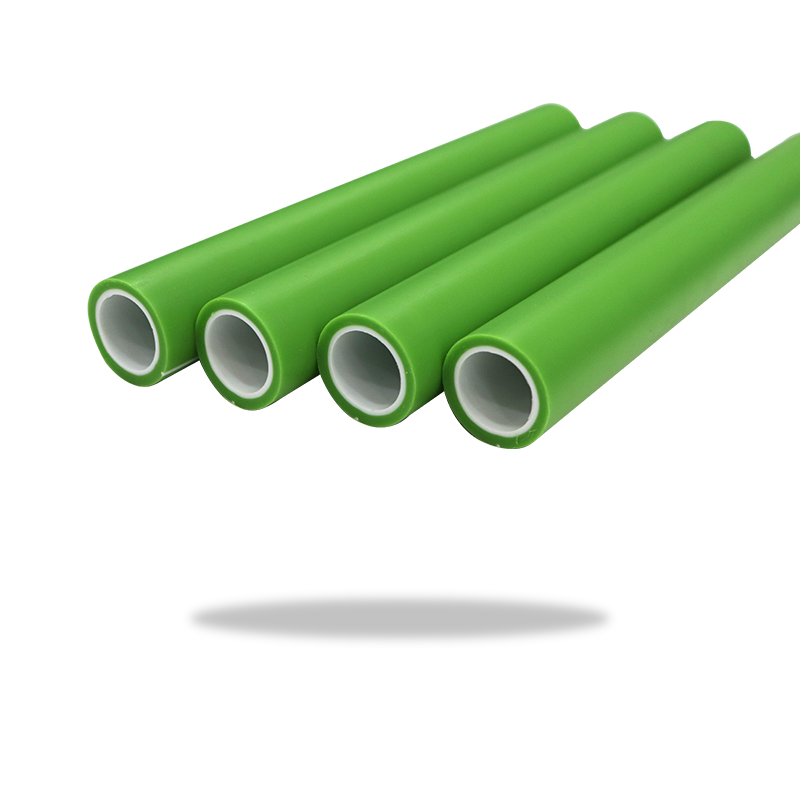PPR Pipe excels in corrosion resistance and chemical resistance, mainly because its material properties enable it to resist the attack of various corrosive substances and chemicals.
PPR pipe is made of polypropylene and has excellent corrosion resistance. It is particularly suitable for conveying water, chemicals and other fluids, especially in industrial applications. Its corrosion resistance is manifested in the following aspects:
PPR pipe has a natural resistance to various ions in water, such as chloride ions and calcium ions, and will not rust or scale like metal pipes. Its internal surface is smooth and will not be corroded due to long-term contact with water. It is suitable for long-term conveying of domestic water, drinking water, etc.
PPR pipe has good tolerance to most weak acid and weak alkaline solutions. This enables it to maintain a long service life when handling some acidic and alkaline chemicals and will not be corroded due to chemical reactions. This tolerance is outstanding when conveying industrial wastewater, sewage or other chemical liquids.
Compared with metal pipes, PPR pipes do not have the phenomenon of electrochemical corrosion. Metal pipes are prone to electrochemical reactions in humid or salty environments, causing rust and damage, while PPR pipes are plastic and do not experience this type of corrosion.

PPR pipes show good resistance to most common chemicals, making them suitable for various chemical transportation or waste treatment pipeline systems. Its chemical resistance includes:
PPR pipes have strong resistance to most inorganic acids, alkalis and salts. For example, dilute sulfuric acid, sodium hydroxide, nitric acid, etc. will not have a significant effect on PPR materials, making them very suitable for applications in chemical pipelines that transport corrosive media.
PPR pipes have a certain tolerance to most organic solvents such as alcohols and ethers, which enables them to be used in some industries involving organic compounds. However, some strong solvents such as benzene or high concentrations of chlorinated hydrocarbons may have a certain effect on PPR pipes, so special designs or other special pipes are required when contacting such substances.
PPR pipes have extremely high chemical stability, and even if they are in contact with chemicals for a long time, chemical reactions will not occur, causing the pipes to deteriorate or leak. Therefore, PPR pipes are widely used in pipeline systems in the fields of chemicals, pharmaceuticals, and food.
Although traditional metal pipes such as steel pipes and copper pipes have high strength, they are far inferior to PPR pipes in corrosion resistance. Metal pipes are easily corroded by minerals and acid-base solutions in water, especially steel pipes and iron pipes are prone to rust, leading to blockage and leakage. PPR pipes will not rust and are not prone to scaling.
Compared with PVC pipes, PPR pipes have advantages in high temperature resistance, pressure resistance and chemical resistance. Although PVC pipes also have certain corrosion resistance, PPR pipes have better stability in high temperature environments and will not soften or deform at high temperatures like PVC.
PPR pipes have excellent performance in corrosion resistance and chemical resistance, making them ideal for conveying water, chemicals and various corrosive liquids. Compared with metal pipes and other plastic pipes, PPR pipes can not only resist ion erosion in water, but also withstand the damage of various acid-base solutions, extending their service life.

 简体中文
简体中文 English
English русский
русский Español
Español Français
Français عربى
عربى Português
Português 日本語
日本語 italiano
italiano Nederlands
Nederlands Polskie
Polskie












